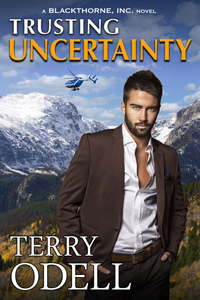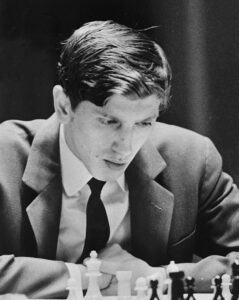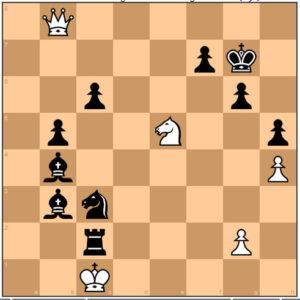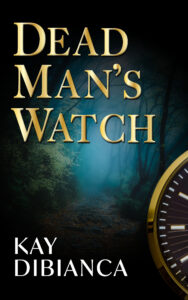By PJ Parrish
If you write long enough, you will eventually get this question: Where do you get your ideas?
Readers seem to be fascinated by the novel writing process, thinking it some mysterious alchemy, stories arising from the ether of the writer’s soul. (Which, of course, it is). But where the ideas come from is often quite prosaic and, well, practical.
I’ve never really given much thought to where my story ideas come from. They just do. Thank God. But I ran across a good blog at Jane Friedman’s site the other day that got me to thinking that maybe the kernels of our stories are an either-or thing.
Guest blogger Susan DeFreitas posits that, in her experience as a book coach, novelists fall into two camps: those who start with character and those who start with plot or story concept. To quote DeFreitas:
CHARACTER: Writers who start with character tend to be empathetic people—“people people,” you might say. A new story for these folks may arrive in the form of a certain voice in their head, or a line or two that seems promising. Or they might be struck at first by a type of character—for instance, a character who’s a bit like an intriguing person they happen to know, or a bit like a character in a book or movie they loved.
PLOT: Plot people, generally speaking, are idea people. A new story may arrive in the form of a concept they’re fascinated by—say, the idea that aliens might be symbiotic beings, in much the same way that lichens are—or an intriguing question: What if two twins, dissatisfied with their lives and marriages, decided to pass as each other for a year? Or they might be interested in writing a type of story. Say, a thriller that revolves around the trafficking of endangered species, or a story that combines elements of space opera and noir.
Well, my Louis Kincaid series, of course, started with my protagonist. He’s a biracial man with a rough childhood as a foster kid who gets kicks off the police force and spends most of ten books trying to reclaim his badge — and his tortured past. Which dovetails with what James wrote about Sunday: backstory as conflict catalyst. So I am character driven, right?
I always thought I was. But as I read DeFreitas’s blog, I realized I am more plot-driven when it comes to inspiration. Which was something of a revelation to me. I seem to fall head-over-heels for the big “what if…?”
Example: My sister and I were doing a book signing in Ft. Myers years back. Kelly and I had just returned from lunch at a rustic inn way out on a tiny island in Pine Island Sound. The waters around Ft. Myers are dotted with hundreds of islands, most just green tufts, but a couple privately owned and quite secretive. We were jawing about setting a book on such a remote place but getting nowhere with an actual plot. A woman came up to our table to get a book and we chatted. She said she was a psychologist who specialized in the sociopathology of extended families forced to live in close quarters.
What if…
There was a big family living out on one of the sound’s remote islands. What if they ran a run-down restaurant to make ends meet but no one knew anything about them? What if one of the women tired of the forced isolation and tried to run away by stealing a boat? What if a hurricane was coming? What if her body was found washed up in the mangroves near Ft. Myers? What if no one could identify her but she was wearing a strange ring carved from coral? What if there were, Louis discovered, a list of unsolved cases of missing teenage girls from the area that extended over thirty years?
So was born Island of Bones. It turned out to be one of our best sellers and won the International Thriller Award.
As I think back now, I realize almost all our stories were plot-hatched. Quite a revelation to this writer who prides herself on character development.
To get back to Susan DeFreitas’s blog: She makes some interesting points about the strengths and challenges for writers of plot versus character inspiration. See if any of this resonates with you:
PLOT INSPIRED
Strength: It’s inherently high-concept
Writers can describe their book in a sentence or two that will get the attention of both readers and publishing professionals, because the story concept speaks for itself.
Strength: Readers love plot
Yes, there’s a solid market for character-driven fiction—but the market for plot-driven fiction is substantially larger, encompassing genres like speculative fiction and mysteries/thrillers. Writers with an intuitive sense of plot don’t struggle to keep their readers turning the pages. In their stories, A leads to B leads to C, and D is that mind-blowing twist that keeps the reader up way past her bedtime. Such writers tend to have a lot of rabbits hidden up their sleeve, so to speak, and for the reader, there’s a real sense of delight when one after the next is revealed.
Strength: There’s no question of what happens
Writers who excel with plot are really people who excel at ideas: they know the field they want to traverse, so they pick the path that hits all the vistas they want to reveal. That’s a very different—and easier—proposition than trying to figure out what a given character or characters should do, or what should happen to them.
Challenge: Lack of character arc
The characters often start as a means to an end, the who that will discover the what. In order for the story to develop a sense of meaning and depth, these writers have to dig deeper with their characters in revision, exploring who these characters really are, what makes them tick, and the emotional journey they’ll make over the course of the story. Plot keeps the reader turning the pages…[but] it’s the characters, and the way they’ve either learned and grown over the story or, tragically, failed to. This is the part that writers who start with plot often have to figure out, and layer in, in revision.
Challenge: The incredible expanding plot problem
The thing about being good at plot is…it’s hard to know when to stop. One thing leads to the next, leads to another, leads to a fascinating subplot, and then another, and then, before you know it, you’ve got 160,000 words of something that may not in fact be publishable. Writers with this problem either have to train themselves how to outline in a way that addresses character arc or develop an eagle eye in revision for what’s really important in the story and what’s not.
Challenge: Lack of a real ending
Writers who tend to start with plot often find themselves writing a series. One pitfall of this tendency is that such writers often don’t know how to actually end their first book in a way that will be satisfying for the reader. Such writers often want to hold onto some big development until Book Two, or even Book Three. My response to that is this: Don’t hold your best cards for some imagined future story, because if you don’t end Book One in way that’s satisfying for the reader, and brings all the major threads of the story through to compelling climax and resolution—even if that resolution is just the troubled situation that will begin the next book in the series—there won’t be another book in the series, because the first one won’t get published.
CHARACTER INSPIRED
Strength: Characters make us care.
Writers who start with character don’t struggle to create characters who seem alive on the page, whose struggles touch upon universal themes, and who exhibit the sort of complexity that makes us as readers really feel what it is to be human.
Strength: There’s a solid market for character-driven fiction.
The vast majority of novels that fall into the genres known as contemporary fiction, women’s fiction, and literary fiction are character-driven. Which is to say, there’s a solid contingency of readers who read fiction for exactly what writers who start with character are generally able to deliver, on every single page: The sense of being someone else, seeing the world through their eyes, and going through a meaningful transformation or change over the course of the story. Writers who start with character generally don’t struggle to determine if there’s a market for the sort of thing they do, because that market is broad and well defined.
Strength: There’s no question whose story it is.
Other types of writers may spend some time in the planning stages of a novel wrestling with the question of who their protagonist should be. But for writers who start with character, this generally isn’t an issue (unless there are so many compelling characters in their head that it’s just hard to choose among them). These type of writers are not like directors looking for actors to play a part in their story—they’re more like directors making a biopic, with the story as a whole built around a certain character.
Challenge: Too many POVs
If you do something well as a writer, why not do more of it? That’s often the position taken by writers who start with character, whether they realize it or not, by adding many different POVs in their novels. POV comes easily to such writers, and they generally find it fun, because they don’t struggle to get inside the heads of the protagonist’s husband, for example, or her kids, or even the checkout clerk at the grocery store where she shops. These other POVs [can be] compelling and well written. But that doesn’t mean they serve the story. sometimes these other POVs are no more than game trails that lead the story off on tangents without contributing to the main story line.
Challenge: Lack of arc
Sometimes writers have so much love and sympathy for their protagonists that they have a hard time imagining a real flaw for that character, or some real issue in the way that person sees the world. But without an issue or flaw there’s no real character arc, no clear way that the story will push the protagonist to grow and change.
Challenge: Episodic or slow plot
Readers in general find deep character work compelling. But that doesn’t mean a novel can just rely on character to keep the reader turning the pages. For that to happen, there needs to be a causally linked series of events, with emotional stakes, that escalates over the course of a story to a distinct breaking point—in other words, a real plot.
So…which compels you — plot or character? And do you find yourself sometimes struggling with some of the challenges of either as outlined by Susan DeFreitas? Maybe you’re a hybrid like me. Yeah, I seem to start with plot, with some big idea. But for me, character must win out in the end.
A really great story is like juggling. You have to be able to keep all the balls in the air. And make it look like the easiest magic trick in the world.
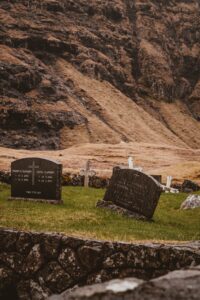


 Another brave writer submitted their first page for critique. Enjoy! I’ll catch ya on the flip side.
Another brave writer submitted their first page for critique. Enjoy! I’ll catch ya on the flip side.
 conflict. This is usually the first lesson a young writer learns, and rightly so. No conflict, no story. No conflict, no interest. Maybe you can skate along for a page or two with a quirky character, but said character will soon wear out his welcome if not confronted with some sort of disturbance, threat, or opposition.
conflict. This is usually the first lesson a young writer learns, and rightly so. No conflict, no story. No conflict, no interest. Maybe you can skate along for a page or two with a quirky character, but said character will soon wear out his welcome if not confronted with some sort of disturbance, threat, or opposition.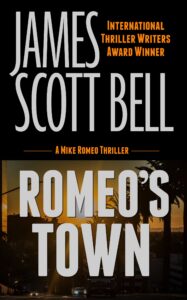
 Congratulations! Big shot producer turned your writing life into a game show.
Congratulations! Big shot producer turned your writing life into a game show.
